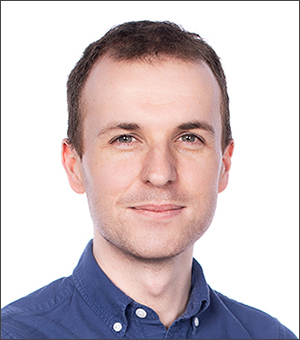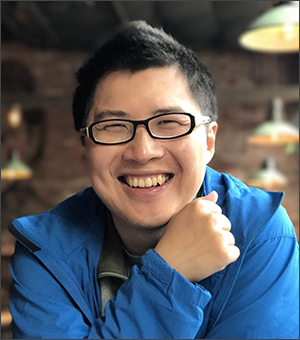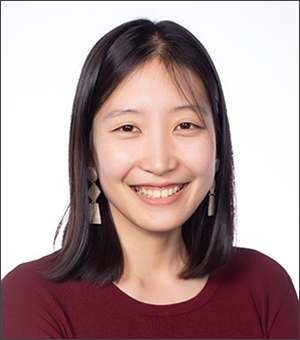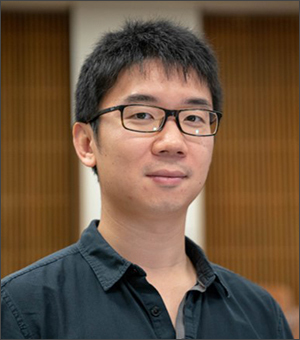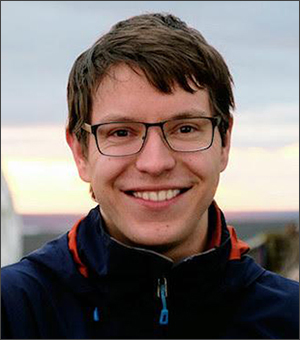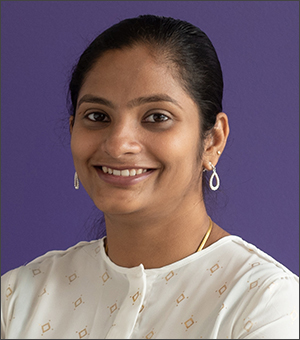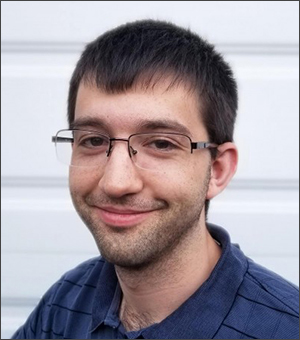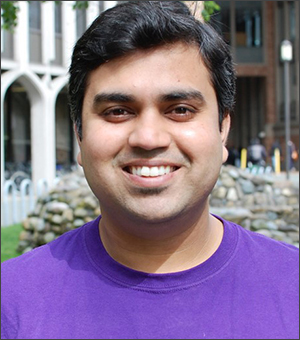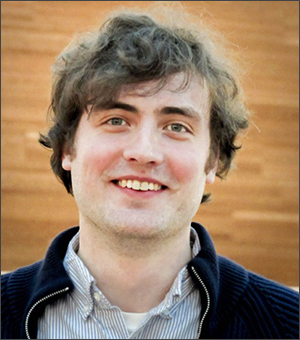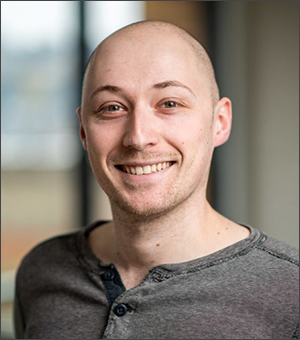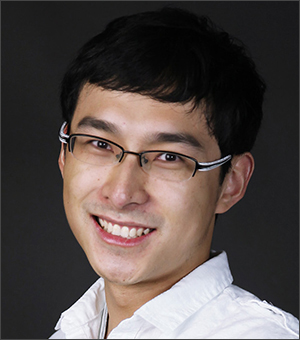Fall in Seattle is signified by the sight of trees turning from green to rust, the sound of raindrops striking rooftops, and the energy infusing the University of Washington campus as students embark upon a new journey of intellectual and personal exploration. For a group of graduating Allen School Ph.D. students, this quintessential autumn ritual carries an added significance as they look forward to their new careers as faculty members at universities across the country and beyond.
Meet the 11 outstanding scholars who are set to extend the Allen School’s impact through teaching, research, and service:
James Bornholt: University of Texas at Austin
James Bornholt will join the computer science faculty at the University of Texas at Austin next fall after spending a year as an applied scientist in Amazon Web Services’ Automated Reasoning Group. Bornholt completed his Ph.D. working with professors Emina Torlak, Dan Grossman, and Luis Ceze on research spanning programming languages, systems, and architecture as a member of the Allen School’s UNSAT and Programming Languages & Software Engineering (PLSE) groups. Bornholt earned a Best Paper Award at OSDI 2016 for Yggdrasil, a toolkit enabling programmers to write file systems with push-button verification, and a Distinguished Artifact Award at OOPSLA 2018 for SymPro, a novel technique for diagnosing performance bottlenecks in solver-aided code through symbolic evaluation. Bornholt was also an early contributor to the development of an archival storage system for digital data in synthetic DNA as part of the Molecular Information Systems Lab, a collaboration between the University of Washington and Microsoft Research. The project was selected as an IEEE Micro Top Pick in computer architecture for 2016.
Tianqi Chen: Carnegie Mellon University
Tianqi Chen will join the faculty of Carnegie Mellon University in 2020 after spending a year at UW spinout OctoML. He completed his Ph.D. working with Allen School professors Carlos Guestrin, Luis Ceze, and Arvind Krishnamurthy as a member of both the MODE Lab and interdisciplinary SAMPL group. Chen’s research encompasses machine learning and multiple layers of the system stack. He was one of the principal architects of the TVM framework, an end-to-end compiler stack designed to bridge the gap between deep learning and hardware innovation by enabling researchers and technologists to rapidly deploy deep learning applications on a range of devices without sacrificing power or speed. The Allen School team transitioned TVM to the non-profit Apache Software Foundation as an Apache Incubator project earlier this year. Chen also co-created XGBoost, an open-source, end-to-end tree boosting system that is designed to be highly efficient, flexible, and portable and which has been widely adopted by industry, and Apache MXNet, an open-source, deep learning framework that supports flexible prototyping and production that was adopted by Amazon Web Services.
Eunsol Choi: University of Texas at Austin
Eunsol Choi will join the faculty of the University of Texas at Austin next fall after spending a year as a visiting research scientist at Google AI in New York City. Choi completed her Ph.D. as a member of the Allen School’s Natural Language Processing group working alongside professors Luke Zettlemoyer and Yejin Choi. Her research focuses on methods of extracting and querying information from text, particularly structured representations of human information such as scientific findings, historical facts, and opinions using natural language questions. Choi was lead author of multiple papers on this topic, including a novel framework for coarse-to-fine question answering that matched or outperformed existing models while scaling to longer documents, and a new dataset for exploring question answering in context (QuAC) that draws upon 14,000 information-seeking dialogs between teacher and student. Choi also contributed to an analysis of the linguistic patterns of news articles and political statements to determine whether content is trustworthy, unreliable, or satirical.
Jialin Li: National University of Singapore
Jialin Li accepted a faculty position at the National University of Singapore after completing his Ph.D. in the Computer Systems Lab, where he worked with Allen School professors Arvind Krishnamurthy and Tom Anderson and affiliate professor Dan Ports of Microsoft Research. Li builds practical distributed systems that combine strong consistency with high performance. One example is Arrakis, a project that earned a Best Paper Award at OSDI 2014. Arrakis is a new operating system that separates the OS kernel from normal application execution to allow applications access to the full power of the unmediated hardware. Li and his colleagues later received a Best Paper Award at NSDI 2015 for Speculative Paxos, a new replication protocol for distributed systems deployed in the data center that employs a new primitive, Multi-Order Multicast (MOM), to achieve significantly higher throughput and lower latency than the standard Paxos protocol. Li was lead author of a subsequent paper that introduced Network-Ordered Paxos (NOPaxos), a system for dividing replication responsibility between the network and protocol layers using another new primitive, Ordered Unreliable Multicast (OUM). NOPaxos achieves replication in the data center without the performance cost of traditional approaches.
Dominik Moritz: Carnegie Mellon University
Dominik Moritz is currently a research scientist at Apple and will join the faculty of CMU’s Data Interaction Group next year. Moritz recently completed his Ph.D. working with Allen School professor Jeffrey Heer and iSchool professor Bill Howe as a member of the Interactive Data Lab and the Database Group. His research focuses on the development of scalable interactive systems for data visualization and analysis. Moritz was a member of the team that developed Vega-Lite, a high-level grammar for rapidly generating interactive data visualizations that earned a Best Paper Award at InfoVis 2016. He subsequently received another Best Paper Award at InfoVis 2018 for Draco, an extension of Vega-Lite that offers a constraint-based tool for building visualizations. Draco formalizes guidelines for visualization design while permitting trade-offs based on user preferences. Moritz also co-created user-centered tools such as Pangloss, which applies optimistic visualization to enable interactive, exploratory data analysis of approximate query results, and Falcon, a web-based system for optimizing latency-sensitive interactions such as brushing and linking that eliminates costly precomputation and enables cold-start exploration of large-scale datasets.
Rajalakshmi Nandakumar: Cornell University
Rajalakshmi Nandakumar will join the faculty of Cornell University next spring as a member of the Jacobs Technion–Cornell Institute at Cornell Tech. Nandakumar earned her Ph.D. working with professor Shyam Gollakota in the Allen School’s Networks & Mobile Systems Lab, where she focused on the development of mobile health applications and novel interaction technologies leveraging the Internet of Things. Her projects included ApneaApp, a mobile app that employed active sonar technology to detect signs of sleep apnea that was commercialized by ResMed as part of the publicly available SleepScore app, and SecondChance, a mobile app for detecting signs of opioid overdose that was presented in the journal Science Translational Medicine and is being commercialized by Sound Life Sciences Inc. She and her colleagues also earned a Best Paper Award at SenSys 2018 for µLocate, a low-power wireless localization system for subcentimeter sized devices. During her time at the Allen School, Nandakumar was recognized with a Paul Baran Young Scholar Award from the Marconi Society, a Graduate Student Innovator of the Year Award from UW CoMotion, and a GeekWire feature as “Geek of the Week.”
Pavel Panchekha: University of Utah
Pavel Panchekha joined the University of Utah faculty after earning his Ph.D. working with professors Michael Ernst and Zachary Tatlock in the Allen School’s PLSE group. Panchekha’s research focuses on mechanical reasoning and synthesis for domain specific languages, including floating-point numerical programs and web page layout code. He and his colleagues earned a Distinguished Paper Award at PLDI 2015 for Herbie, a tool for finding and fixing floating-point problems. Herbie automatically rewrites floating-point expressions to eliminate numerical rounding errors and improve the accuracy of programs. Panchekha was also a major contributor to the Cassius Project, a framework for reasoning about web page layouts that offers tools for verification, synthesis, and debugging based on an understanding of how web pages render. As part of that project, Panchekha led the development of VizAssert, which verifies the accessibility of page layouts across a range of possible screen sizes, browsers, fonts, and user preferences.
Aditya Vashistha: Cornell University
Aditya Vashistha is joining Cornell University’s Department of Information Science this fall after completing a stint as a visiting researcher at Microsoft. Vashistha, who has the distinction of having earned the 600th Ph.D. granted by the Allen School, completed his degree working with professor Richard Anderson in the Information & Communication Technology for Development (ICTD) Lab. His research focuses on the development and deployment of novel computing systems for people with disabilities or low literacy and residents of rural communities, including the first-ever analysis of the use of social media platforms by low-income people in India, which earned a Best Student Paper Award at ASSETS 2015, and Sangeet Swara, a voice forum that relies on community moderation to disseminate cultural content in rural India that earned a Best Paper Award at CHI 2015. He and his collaborators later earned an Honorable Mention at CHI 2017 for Respeak, a low-cost, voice-based speech transcription system that provides dignified digital work opportunities in low-resource settings. Vashistha’s work, which earned him a Graduate Student Researcher Award from the UW College of Engineering, so far has reached an estimated 220,000 people in Africa and southern Asia.
Doug Woos: Brown University
Doug Woos joined the Brown University faculty as a lecturer focused on introductory computer science and courses in systems and programming languages. He recently earned his Ph.D. working with Allen School professors Tom Anderson in the Computer Systems Lab and Michael Ernst and Zachary Tatlock of the PLSE group. In his research, Woos applies techniques from programming languages to systems problems, with a focus on new approaches for verifying and debugging distributed systems. He was a member of the team behind the award-winning Arrakis operating system and co-led the development of Verdi, a novel framework for the formal verification of distributed systems using the Coq proof assistant that supports fault models ranging from idealistic to realistic. Woos and his colleagues later used Verdi to achieve the first full formal verification of the Raft consensus protocol, a critical component of many distributed systems. He also led the development of Oddity, a graphical interactive debugger for distributed systems that combines the power of traditional step-through debugging with the ability to perform exploratory testing.
Mark Yatskar: University of Pennsylvania
Mark Yatskar will take up a faculty position at the University of Pennsylvania next fall after completing his time as an AI2 Young Investigator. He completed his Ph.D. working with Allen School professors Luke Zettlemoyer in the NLP group and Ali Farhadi of GRAIL on research that uses the structure of language to advance new capabilities in computer vision. Yatskar was a member of the team that developed ImSitu, a situation recognition tool that uses visual semantic role labeling to move computers beyond simple object or activity recognition. ImSitu is designed to achieve a more human-like understanding of how participants and objects interact in a scene, enabling computers to predict what will happen next. Yatskar has also studied ways to reduce gender bias in machine learning datasets. For example, he and his collaborators earned a Best Long Paper Award at EMNLP 2017 for presenting Reducing Bias Amplification (RBA), a technique for calibrating the outputs of a structured prediction model to avoid amplifying gender biases ingrained in image labels incorporated into training datasets.
Danyang Zhuo: Duke University
Danyang Zhuo will join the faculty of Duke University next fall after completing a postdoc in the RISE Lab at the University of California, Berkeley. Zhuo recently completed his Ph.D. working with professors Tom Anderson and Arvind Krishnamurthy in the Allen School’s Computer Systems Lab. His research spans operating systems, distributed systems, and computer networking, with an emphasis on improving the efficiency and reliability of infrastructure and applications in the cloud. One of his early contributions was Machine Fault Tolerance (MFT), a new failure model that improves the resilience of data center systems against undetected CPU, memory and disk errors. Zhuo was lead author of a paper presenting Slim, a low-overhead container overlay network that improves the performance of large-scale distributed applications. Slim manipulates connection-level metadata to enable network virtualization to improve throughput and reduce latency. He also led the development of CorrOPT, a system for mitigating packet corruption in data center networks that was shown to reduce corruption losses by up to six orders of magnitude and improve repair accuracy by 60% compared to the current state of the art.
“Whether our graduates are heading to academia or industry, we are extremely proud of their past achievements and ongoing contributions to our field,” said Allen School director Hank Levy. “But I am thrilled that so many of our outstanding alumni this year will be guiding the next generation of students in using computing to make a positive impact on society. It is exciting to see so many former students become faculty colleagues who will extend the reach of the Allen School and University of Washington around the world.”
In addition to the 11 alumni of the Allen School’s Ph.D. program, two graduates with strong ties to the program also went on to faculty positions. Edward Wang, a graduate of UW’s Department of Electrical & Computer Engineering, recently joined the faculty of the University of California, San Diego. Wang recently earned his Ph.D. working with professor Shwetak Patel in the Allen School’s Ubicomp Lab on new sensing techniques for detecting and monitoring health conditions using mobile devices. Sarah Chasins, meanwhile, spent the past several years embedded in the Allen School and working with professor Rastislav Bodik while completing her Ph.D. from the University of California, Berkeley, where Bodik was previously a faculty member. Chasins, whose research is aimed at democratizing programming and developing tools that make it easy to automate programming tasks, will join the Berkeley faculty next fall.
Congratulations and best wishes to all of our newly-minted faculty colleagues — see you on the conference circuit!


